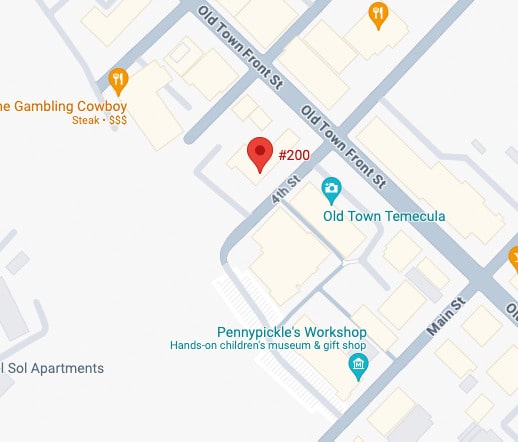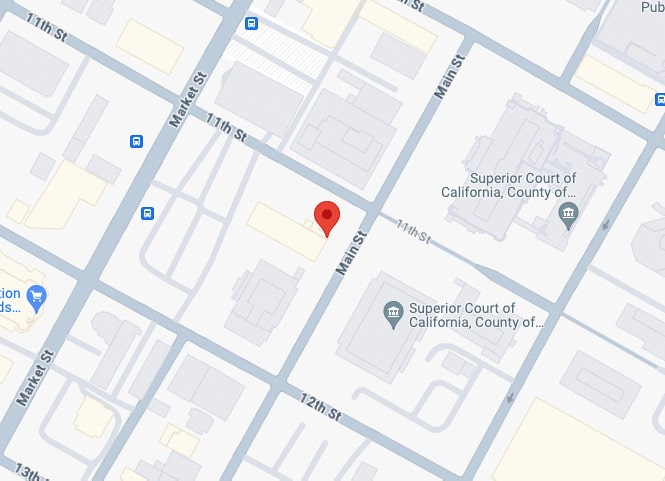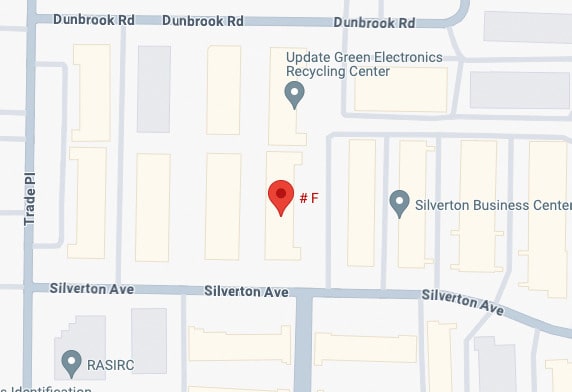When the police arrest you for a DUI, they will likely put you in custody after the booking process and have you post bail. The bail amount varies depending on the severity of your charges, whether you are a repeat offender, and whether you have skipped bail before. Usually, the bail amount for DUI cases ranges from a few hundred dollars to tens of thousands of dollars. You can post a cash bail, surety bond, or property bond. If you do not have enough money to post cash bail, you could seek the help of a reliable DUI bail bondsman to post bail on your behalf.
Understanding a DUI Bail
A DUI bail is an amount that a certified bondsman posts with the court to secure the release of a defendant arrested for DUI charges. The bail agreement between the court and the bail bondsman guarantees the defendant's attendance at court hearings. If the defendant fails to attend the scheduled hearings, the bondsman will be liable for any expenses related to apprehending the defendant. In most situations, this includes paying the whole bail amount plus any additional fees and penalties.
Here are the five key things you should know about posting a DUI bail bond:
- You can post bail through a bail bond.
- Another person can post bail on your behalf.
- Your bail is usually set at a bail hearing.
- Bail amounts are usually preset.
- If you miss court appearances, you forfeit your bail amount.
-
You Can Post Bail Through a Bail Bond
If you have enough money to pay your DUI bail in cash, you can post the amount with the court or the clerk and secure your release. If you do not have sufficient cash to post your bail, you can book a bail bond for a release from jail. A bail bond often acts as a personal loan. The bondsman is like a private loan lender, just like a loan officer. The bondsman will post bail if you meet a non-refundable bond premium. The premium is usually 10% of your total bail figure. For example, if you face charges for a misdemeanor DUI and the bail amount is $1000, you will pay the bondsman a $100 non-refundable premium to post bail.
Most bail bond companies can demand that you provide collateral so that they can post the total amount of bail. Collateral is typically a deed to your vehicle, jewelry item, real estate, or other qualifying property. If you fail to attend your appointed court date, the collateral can be disposed of to repay the bail bond's loan. When your case ends, the court will refund the bail money, and you have honored all the court dates. Therefore, the bail bond company will get a refund of the amount posted as bail.
The bondsman and the bail bond company can take additional precautions to ensure you show up for all court dates because of the financial risk they take. The bondsman will work hard to ensure their company gets back the money pledged as bail. Some of the preventive measures a bail bond company could take include:
- Asking you to make frequent check-ins at their office to ensure you have not left town.
- Reaching out to you before each court date to remind you regarding the upcoming court proceedings.
- Ask your friend or relative to put up collateral for your bail. This will make you attend the court trial because your friend’s or relative’s property or house is on the line for your bail.
-
You Can Post Bail On Behalf Of a Defendant
The law permits you to post a DUI bail on behalf of someone else. The defendant could be a family member, a close relative, or a friend. You can secure bail with a bail bond or post-cash bail if you have enough money. In this case, there could be a three-way contract between you, the defendant, and the court.
It can be a challenge to post bail for a DUI arrestee, especially if it is your first time. Perhaps you do not know the amount of bail to post and the acceptable payment method. You could also be confused and wonder whether your loved one will escape after release from custody, leaving you with a financial burden. You can only make informed decisions if you understand the legal conditions and the risks related to posting DUI bail for your loved one.
Usually, you should do the following before posting bail:
Determine The Bail Amount And Method Of Payment
The two main things you should consider when posting bail for a loved one are the amount and payment method. The judge will determine the bail amount based on flight risk, crime severity, and other factors.
Several options are available for you to post bail for your loved one, including bail from a bondsman, money orders, personal checks, and cash. In some situations, debit and credit cards could also be accepted.
Determine If The Defendant Is Trustworthy
Some friends or relatives are liars. It is best to let someone else post bail for a relative or friend if they have a history of cheating or lying. If you post bail for someone you do not trust, you could lose the bail amount and lose your house or vehicle as collateral.
Find Out If There Is A Relative Who Is Willing To Bail The Defendant Out
It is advisable to first find out if any other person is willing to post bail for the defendant. You do not have to get stuck bailing another person’s offense when the defendant has closer relatives or friends who can post bail for them.
Understand The Risks Involved
Bailing another person out does not just mean that you are securing their release from custody. It also means that you have imposed a substantial weight on yourself. You will be responsible for any expenses outstanding if the defendant fails to attend court proceedings. You will also incur additional costs if there is a need to seek the services of a bounty hunter to trace the defendant. If the defendant cannot meet the requirements, you could also have to pay the total amount pledged as bail. Therefore, before you reach out to a bondsman, you need to understand what you are getting yourself into.
Listen To The Defendant’s Side
Listen to the defendant's side of the story. Determine if the defendant is innocent and has been trustworthy and honest in the past. Determine also if he/she is telling you the truth. Knowing the defendant's side of the story can assist you in determining whether the defendant has reasons to escape.
Weigh The Circumstances
You should judge the circumstances before posting bail for a friend or relative. You need to know why he/she is being arrested. Understanding the offense the defendant has committed can assist you in determining whether you can trust them to attend the court hearings. A defendant can fail to attend court hearings if he/she is facing serious charges. A defendant could also fail to attend court hearings if he/she feels he/she could lose a lot after conviction.
The Action To Take If The Defendant Fails To Attend Court Hearings
If you post bail on behalf of a loved one and he/she fails to attend court hearings, you should reach out to the bail bonds company immediately and notify them of the situation. A bail enforcement agency will seize the defendant, surrender them to jail, and legally revoke the bail. Apart from revoking bail, you will also be liable for the bail enforcement fees and other expenses when the defendant is arrested.
You can file a bail remission motion to petition for a refund of the forfeited money. You can set a bail aside by remission if it is forfeited. You have one year to do this from the date of forfeiture. The court will determine whether to recall the forfeiture. The forfeiture can be set aside if:
- You were not aware of the particular situation that was infringed on.
- The government was not damaged or prejudiced by the violation.
- The government faced no risk in trying to trace the defendant.
- The defendant’s breach was not deliberate.
-
Your Bail Is Usually Set At A Bail Hearing
If the police arrest you for DUI, you are likely to be held in custody until you post bail. You can request a bail hearing if the bail is too expensive for you to afford. A bail hearing is a brief hearing before a judge. You can have the bail hearing in the following ways:
- You will automatically get a bail review hearing if bail was already set and you have not paid it within five days.
- Filing a motion requesting a bail hearing.
Unlike other court hearings, a DUI bail hearing is usually very casual. The final decision lies with the judge alone; you do not have to provide much evidence. Your attorney can present the case, and the prosecutor can challenge it. The judge will decide the following during the hearing:
- Whether you can avoid paying bail and be released on your own recognizance or.
- Whether to post bail and be released from custody.
Sometimes, the prosecutor could ask the judge to raise the bail. However, the judge has broad discretion in decreasing or increasing your bail upon considering the following:
- Your criminal record.
- Whether you ever failed to attend a criminal court proceeding.
- Your ties to the society.
- The strength of the evidence against you.
- The nature and circumstances surrounding the DUI.
Winning At Your DUI Bail Hearing
You can increase your chances of winning the DUI bail hearing if you hire an attorney to handle the hearing on your behalf. A skilled DUI attorney knows the arguments that work best in bail hearings. For example, an attorney could
- Suggest using a house arrest or SCRAM device so that you cannot escape from the country.
- Recommend an IID installation in your vehicle so that you cannot drink and drive and injure someone else.
- Propose that you be released as long as you surrender your passport to the court.
- Table new evidence indicating that you are not a threat to the community.
Sometimes, the judge considers DUI bail issues at an arraignment rather than a bail hearing.
-
Bail Amounts Are Usually Preset
The judge will address any request for bail that the prosecutor has when you appear in court for arraignment on a DUI. Most DUI crimes have preset bail amounts. For example, a first-time DUI crime in California is charged as a misdemeanor. The bail for misdemeanor charges ranges from $500 to $1,000. A first-time DUI defendant could also be released on own recognizance while the case is pending. In some situations, the police will book you into jail and release you the following day without posting bail if you were arrested on suspicion of a first-time DUI crime. You could be issued with a citation showing an arraignment date in court. In this case, you or your attorney will have to show up for the arraignment hearing.
The bail amount, however, could be enhanced depending on the facts of your case. Your bail could be enhanced if your DUI arrest:
- Involved a blood alcohol content (BAC) above 0.15%.
- Was a felony DUI.
- Was a second or subsequent arrest.
DUI statute imposes a legal alcohol limit for most adult motorists of 0.08% BAC. The law also sets lower BAC limits for underage drivers, ride-share, limo, taxi, and commercial drivers. Generally, the BAC limits are:
- 0.05% for underage drivers below 21 years.
- 0.04% for limo, taxi, and ride-sharing drivers.
- 0.04% for commercial drivers.
- 0.08% for adult drivers.
The judge can charge DUI as a felony in four circumstances:
- If you cause a fatal accident while driving under the influence.
- If someone else sustains bodily injury in the accident you caused while intoxicated.
- If you have a previous conviction of committing a felony DUI offense.
- If the DUI violation is your fourth crime in a ten-year look-back period.
The court can order you to post bail for you to be released if you committed a felony DUI crime, caused a fatal accident, or were involved in a hit-and-run accident. In this case, the court can order you to post bail amounting to $100,000. The judge can also order you to post $15,000 if you have a prior DUI conviction within ten years.
The court could order you to pay $25,000 in bail if you have two or more prior convictions. If you refused to submit to DUI chemical testing, had a BAC of 0.15%, or caused a traffic collision, the bail schedule recommends a $10,000 enhancement. If you were involved in both a traffic collision and a DUI refusal or a BAC greater than 0.15%, the bail schedule recommends a $25,000 enhancement.
-
If You Miss Court Appearances, You Forfeit Your Bail Amount
You will receive a full refund of the bail amount if you post cash bail and make all of your court appearances. This will happen once your case is closed. You will get a refund of the bail amount whether the court makes a guilty or not-guilty ruling. However, you will forfeit the full bail amount if you fail to attend the court proceedings. Additionally, you will forfeit your bond premium if you use a bail bond to post your bail. This is true whether you miss a single court date or all your court dates.
However, you can avoid forfeiture of the bail amount if you missed attending court hearings for reasons that were beyond your control. However, you must inform the court or your bail bondsman about the reason for missing the court date as soon as possible.
When the court grants you bail for a DUI, you could be ordered to comply with specific conditions for the bail to remain valid. Violating the conditions could also lead to a bail forfeiture. Some of the standard bail conditions include the following:
- Surrendering your driver’s license to ensure that you do not operate a vehicle for a defined period.
- A void driving with any measurable alcohol in your system.
- Avoid consuming drugs and alcohol.
- Wear an ankle monitor so that you do not leave specific locations.
- Enroll for DUI classes for a period ranging from several months to several years.
Find a Reliable DUI Bail Bondsman Near Me
Facing a DUI arrest is a stressful and unexpected experience. You could be held in jail until you post bail and secure your release. Typically, a driver detained on a DUI charge will not be released until bail is imposed by the court and paid in full. Justice Bail Bonds offers quick, flexible, and cost-effective bail services in Temecula, CA. Contact us to learn what our skilled and experienced bail bond providers can do for you. Do not stay in custody any longer than necessary. Allow us to take charge of the process so you and your loved ones can return to living your lives. Contact us at 714-541-1155 to speak to one of our bail bondsmen.










